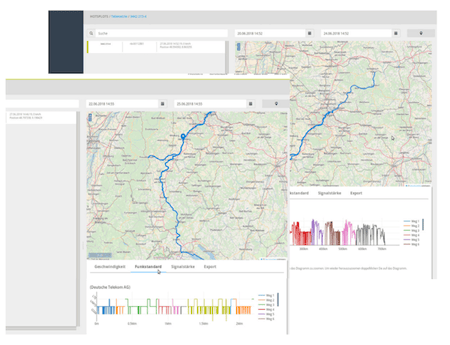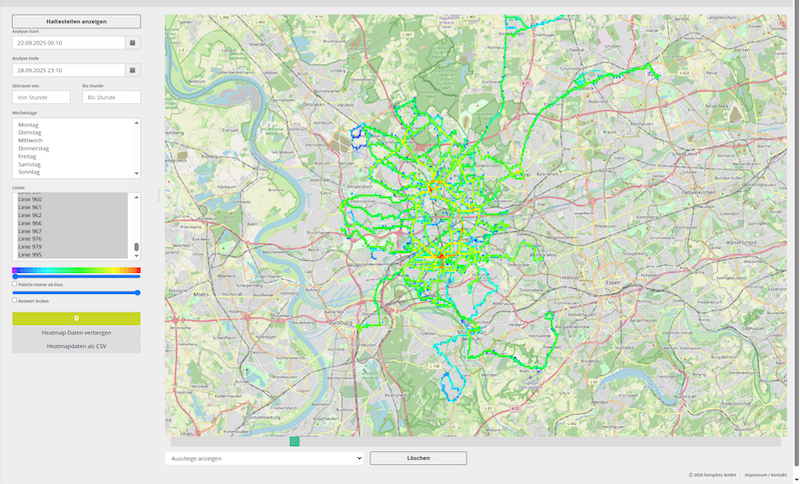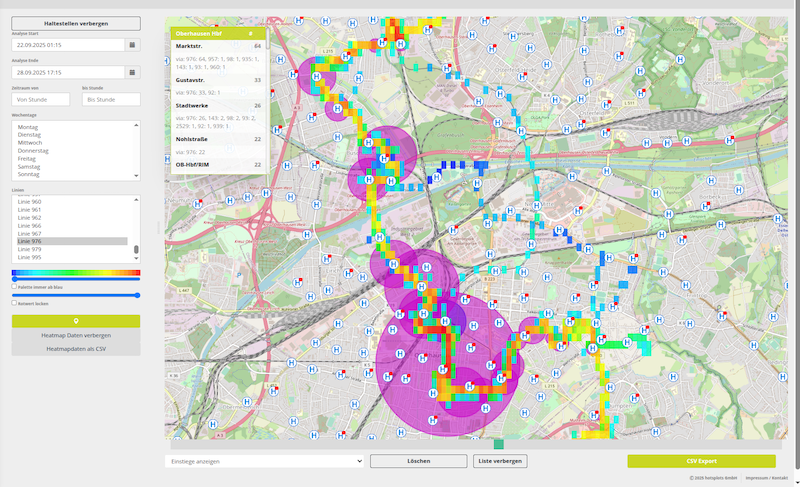Transports WiFi solutions
High-performance and reliable WiFi solutions for road or railed vehicles
Mobile solutions for buses and trains, by HOTSPLOTS (Wifirst Group)
More and more bus operators and public transport operators throughout Europe are offering their passengers free hotspots from HOTSPLOTS on buses and trains. The operators of the vehicles benefit from the comprehensive services HOTSPLOTS has to offer. These include hardware specially developed and certified for use in vehicles (e.g. routers and outdoor antennas for cellular reception) and combine reliable internet connection with various entertainment solutions.
HOTSPLOTS’ WiFi solutions provide passengers with fast and flexible access to the internet. The operator decides how the framework conditions for access should be designed: free of charge and unlimited or with volume or time limits.


Passenger WiFi : your benefits at a glance
Hotspot Roaming
Automatic reconnection for your passengers at the next hotspot
Seamless connectivity
Area-wide and seamless automatic log-in via all WiFi-equipped vehicles, stops and customer centres of one or more transport companies
Wide range of access modes
Wide range of conditions on how your hotspot can be used — free of charge and unlimited or with volume, time or bandwidth restrictions
Mobile connections
Higher total bandwidth possible through channel bundling of several mobile connections
HSVPN
Legal security
Certified hardware
Fleet monitoring
Flexible and expandable
Easy and fast
Full services for you
HOTSPLOTS Telemetry
Telemetry offers a basic service for the fleet management of your vehicles. This allows you to monitor the locations and routes of your buses, trams, or trains, and measure the quality of the mobile phone connection of the respective provider on your routes.
- Monitoring of the locations and driven routes of the vehicles (tracking of the GPS position)
- Measurement of the quality of the mobile phone connection of the respective provider on your routes
- Optimal control and configuration of the hotspot in the vehicles by combining GPS coordinates, hotspot usage and mobile data
- Processing and reporting of all measurement results by providing map-based overviews and dashboards

Passenger Volume
Features at a glance:
- Evaluation of end devices at vehicle level (hotspot)
- Correlation with line/trip possible
- In the cloud: Extensive functions for evaluating passenger data in the HOTSPLOTS customer area.
- From the cloud: Download of data for own further processing
- Live within your own system: API for retrieving data in real time for individual use, e.g. for heat maps, capacity utilisation displays, threshold analyses, traffic planning, etc.
- No separate consent by WiFi users required
Possible use scenarios of the data:
- Display of the vehicle utilisation on a map view (website & app). This allows passengers to see in advance whether the next bus or train is crowded and, if necessary, take the ride at a later time or switch to another line.
- Data-based measurement of threshold values, e.g. the number of passengers in vehicles or on platforms (increasing safety)
- Verification of models and forecasts (comparison of expected passenger volume at a certain point in time vs. actual passenger volume)

Passenger Flows
HOTSPLOTS offers a GDPR-compliant solution for recording, processing and visualising the movements of passenger flows.
Features at a glance:
- Monitoring of associated devices at transport network level (across hotspots)
- Various data can be added (e.g. IBIS vehicle bus, ITCS)
- Use for passenger flow analysis, route planning/optimisation and many more applications
Possible use scenarios of the data:
- Extensive data on place of departure, transfer stops and destination stops used by passengers in the transport network
- Data-based planning and optimisation for new and existing lines through analysis of passenger flows
- Insights from the analysis of passenger flows can be used to optimise timetables and vehicle dispatching
- Verification of models and forecasts (comparison of expected passenger volume at a certain point in time vs. actual passenger volume)








